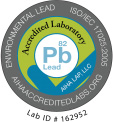
Air quality in general refers to the amount of fine particles, gasses, and other particulates mixed into the air. A test of indoor air quality measures the state of the air trapped inside of a specific space. Whether you’re considering indoor or outdoor air quality, the goal is to have fewer pollutants in the area.
A range of pollutants, particulates, and allergens can affect indoor air quality.
Three common air pollutants
- Mold is one of the most common air irritants, and even though mold is typically detectable by smell, that’s not always the case. A leaking pipe or humid bathroom often leads to mold growth that spreads irritating spores into the air. These spores can be present in the air yet remain completely hidden as it grows behind walls and in dark, damp, nooks of your home. Often not noticed until it’s a severe problem.
- Pesticides are another common pollutant. As pest problems are treated some of the chemicals used result in poor air quality. This can be minor or it can emerge as a major irritant, depending on the amount of pesticides, types, and frequency of use. It’s always a good idea to let an area be well ventilated if using any pest sprays.
- Dust and Volatile organic compounds (VOCs) The excess dust generated by building materials are detrimental to the indoor air quality. Furnace and fireplace fumes are common combustion related pollutants often found in homes. From biological to chemical related pollutants, there are many reasons to test the air in your home.
There’s always a concern with older homes as they may include materials known to emit harmful VOCs or pollutants. However, that doesn’t mean new homes can’t have issues with indoor air quality. Over the years regulations for new home construction means generally better air quality, as long as the builders adhere to those updated regulations.
So how often should testing be performed?
If you’re noticing problems that you feel could be attributed to poor air quality then that’s definitely a good time to get your air tested.
When renovations have recently been performed it can stir up a lot of dust and construction debris, no matter how careful the work crew is. This is a prime time for an air quality test. For example, discovering an ongoing mold infestation when renovating a bathroom or removing old carpet, a mold-specific air quality test would be a good plan. Generally a yearly air quality test can detect most irritants before they cause problems.
Routine air quality testing is a good protocol! Just making sure your air quality is up to par will go a long way to keep the air you breathe clean as possible and in turn will keep you and your family healthier. Even if you’re not experiencing problems, it’s a good preventative measure to know what’s in the air you’re breathing. The best way to do this is by routinely testing the air.
SanAir offers a state of the art lab and overnight shipping of all the materials you need to ensure safe air quality. We can address your concerns and give you peace of mind that the air you’re breathing is the cleanest air possible. Visit us online or call us to learn more about the services we offer at (804) 897-1177.












